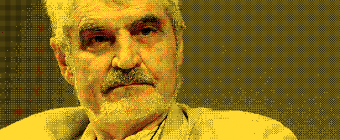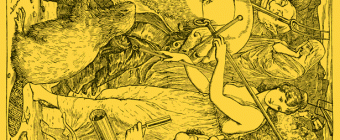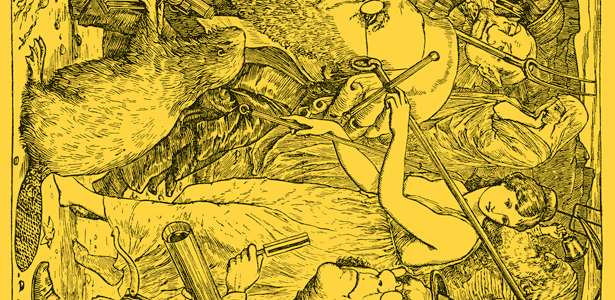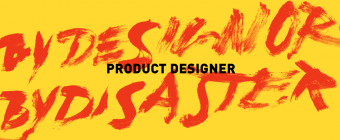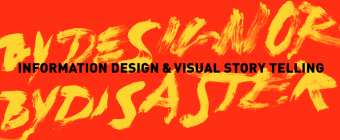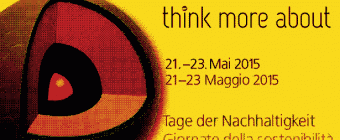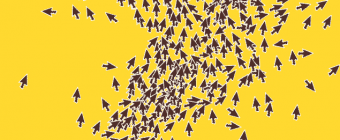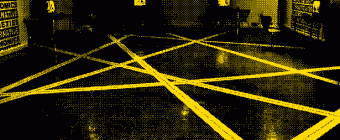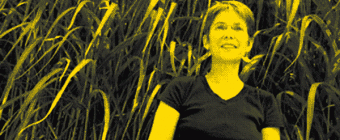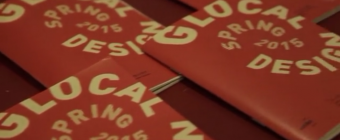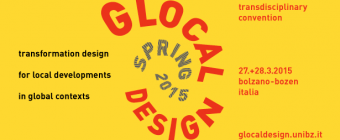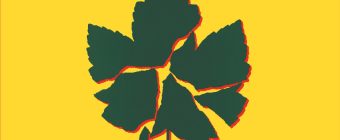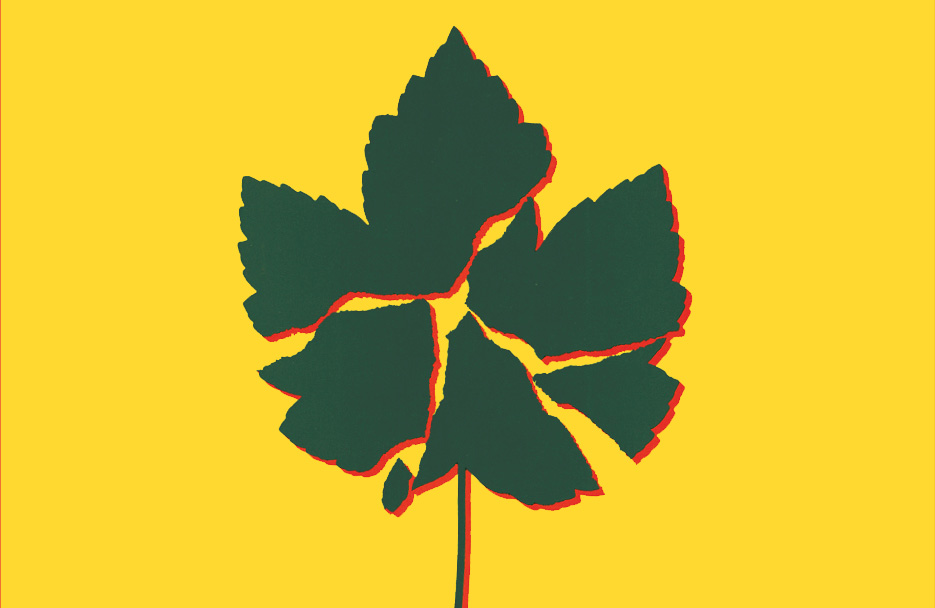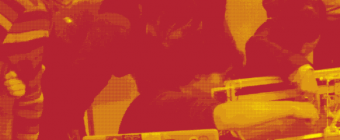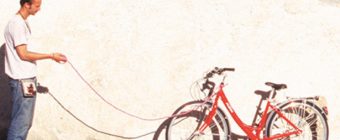Author Archives: Kris Krois
MA Eco-Social Design starts on October. Apply until 8 July
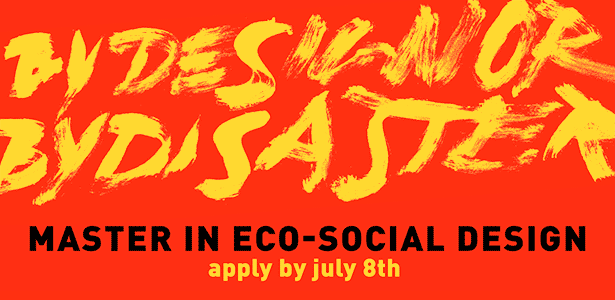 apply now or never — at least not this year. And help to spread the message to interested people and parties.
apply now or never — at least not this year. And help to spread the message to interested people and parties.
Read more about the Master in Eco-Social Design on its web page, the latest newsletter, get updates and spread via FB + twitter.
Sustainable Greetings
Kris >< Krois
3 Bücher zu Eco-Social Design
Bücher zum Thema gibt es viele, doch müsste ich mich heute auf 3 beschränken, würde ich folgende wählen – auch weil sie sich wunderbar ergänzen:
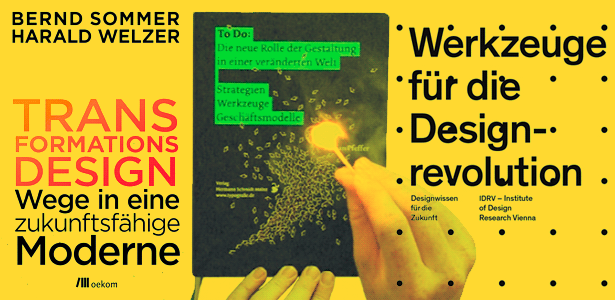
“Transformationsdesign. Wege in eine zukunftsfähige Moderne” von Harald Welzer und Bernd Sommer ist dabei, weil die Authoren präzise und eloquent Leitlinien für zukunftsfähige Gestaltung skizzieren. Dabei stellen sie zunächst die Entwicklung der Konsum- und Leistungsgesellschaft dar, ihre Auswirkungen auf Menschen, Gemeinschaften und Umwelt. Weiter geht’s dann mit einer kritischen Analyse bekannter Lösungststrategien und einer Argumentation wieso Green Economy, Inwertsetzung und technische Lösungsstrategien alleine nicht funktionieren werden. Fazit: ohne Reduktion und veränderte Lebensstile wird’s nicht klappen. Lebensqualität und zivilisatorische Errungenschaften müssen jedoch nicht geopfert werden – im Gegenteil. Wie das gehen kann zeigen die Autoren anhand examplarischer Design-Projekte, die vor allem auf Umnutzung, Wiederwendung, gemeinschaftliche Nutzung und anderen kreativen “Wertschöpfungen” setzen. Damit zeigen die Autoren konkrete Möglichkeiten, und üben nicht nur wissenschaftlich fundierte Kritik.
Ein ein Feuerwerk von Ansätzen und Inspirationen stellt Florian Pfeffer zusammen, in “To Do: Die neue Rolle der Gestaltung in einer veränderten Welt” – eher Hypertext als lineares Buch. Der Autor vernetzt eine Menge spannende Beispiele von ökosozialen (Design)Projekten, verbindet damit Ansätze aus anderen Bereichen und versucht Methoden oder Strategien zu extrahieren.
Wie der Titel schon sagt, werden in “Werkzeuge für die Designrevolution. Ein Handbuch für zukunftsfähige Designstrategien” praktisch nutzbare “Instrumente” für Designer vorgestellt, von der DIY Ökobilanz bis zu Kreativmethoden. Gespickt ist das Ganze mit sehr prägnanten Texten, in denen Herausforderungen der Gegenwart mit Designstrategien in Verbindung gebracht werden. Eine dichte und doch lockere Lektüre mit großzügiges Layout, und schönen Zusammenspiel von Bildern, Grafiken und Texten. Essentiell. Entstanden ist das Buch am IDRV – Institute of Design Research Vienna. Es ist auch auf englisch erhältlich als “Tools for the Design Revolution. A handbook for sustainable design strategies“.
Mehr Buchempfehlungen haben wir von unseren vielen Gästen, die hier Vorträge oder Workshops gehalten haben. Wir bitten sie immer 3 Lektüreempfehlungen zu geben. Diese sind auf ihren jeweiligen Seiten zu finden, die über das Menü “PEOPLE” zugänglich sind (s.o.).
Was ist Ihre/Deine Empfehlung? Bitte im Kommentar hinterlassen.
Interview zum Master in Eco-Social Design
Nina Kirst: Warum ist so ein Studiengang notwendig?
Kris Krois: Die Konsumorientierung bringt unsere Gesellschaft an ihre ökologischen und sozialen Grenzen. Es braucht neue Muster des Wirtschaftens und Lebens – und wir glauben, dass Designer hier eine wichtige Rolle spielen. Dabei geht es nicht in erster Linie um ökoeffizientere Produkte, sondern um Lebensstile, Werte und Politik im weitesten Sinne.
Weiter geht’s im kompletten Interview im Page Magazin.
what the hell is nanotourism?
nanotourism is a platform to research and produce participatory, locally-oriented, non-intrusive strategies as an alternative to the current environmental, social and economic problems of the booming tourism industries.
To get more concrete answers, join the DoD TALK, tuesday, 9th of June at unibz (F0.03) with architect and illustrator Silvia Susanna, who co-developing the BIO50}hotel during Biennial of Design of Ljubljana.
10.6. @ unibz: Serge Latouche: Growth is the Problem, not the Solution
Serge Latouche is a fore-thinker of degrowth. The French economist / social scientist / philosopher / activist speaks in at the Free University of Bozen-Bolzano on the campus Brixen-Bressanone, next wednesday, 10th of July, 18:00-20:00, Aula Magna
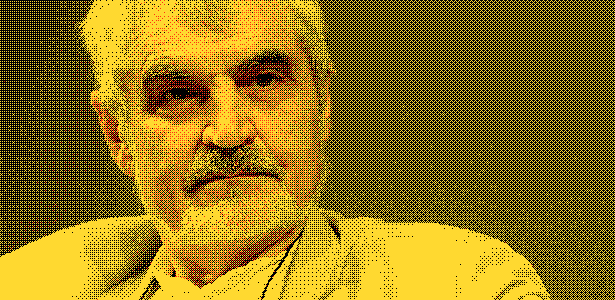
If you don’t know Latouche and get a taste:
What is degrowth? “By „degrowth“ we understand a downscaling of production and consumption in the industrialized states that increases human well-being and enhances ecological conditions and equity on the planet.” read on in “What does “degrowth” mean to us?“. This fits well to our upcoming Master in Eco-Social Design, which is not only about more eco-efficient products and services, but is striving for more social good and good life with less material goods. More about the Master.
The lecture and discussion will be in Italian language.It is organized and moderated by Prof. Susanne Elsen.
Professorship in Design Research
Preliminary Request for Expressions of Interest*:
In 2016 we will set up a new professorship in Design Research. We are looking for a expert in Design Research, who wants to engage in transdisciplinary collaborations in the context of eco-social transformation. Teaching will happen in our project-oriented study programs, among others in the Master in Eco-Social Design (Glocal Design).
Requirements: habilitation (or equivalent) and/or professorship (or equivalent position). For more information please get in contact with us.
* after approval of the responsible bodies the formal call will be published
Professorship in Sociology
Preliminary Request for Expressions of Interest*:
In 2016 we will set up a new professorship in Sociology*. We are looking for a sociologist, who wants to engage in transdisciplinary collaborations with designers in the context of eco-social transformation. Teaching will happen in our project-oriented study programs, among others in the Master in Eco-Social Design (Glocal Design).
Requirements: habilitation (or equivalent) and/or professorship (or equivalent position). For more information please get in contact with us.
* after approval of the responsible bodies the formal call will be published
HIRING: PRODUCT DESIGNER (closed)
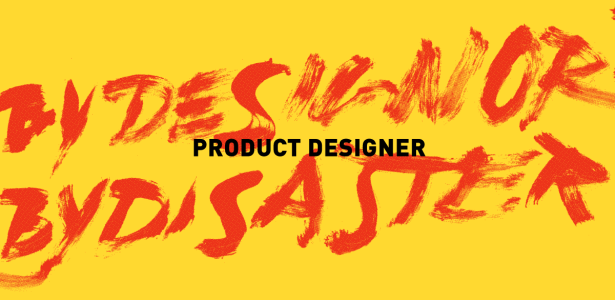
We are looking for a designer, who likes to engage in eco-social issues by the means of product design with particular attention on the fields of materials and production.
Deadline: June 8th. Find the official call here. In case you have trouble understanding the bureaucratic language and the procedure, please do not hesitate to ask for help.
At the Faculty of Design and Art of the Free University of Bolzano we will start a Master in Eco-Social Design (Glocal Design)* in the winter semester 2015/16. In this context we will open a position as a researcher and teacher with a 3-years contract (“ricercatore a tempo determinato / RTD”). You will teach in the master, and you will do design and “research by design” in projects, where design acts as a catalyst of eco-social transformations. We see product design and visual communication as a interdisciplinary catalyst of change. This involves a multitude of factors and is undoubtedly challenging. Therefore, we collaborate in multidisciplinary teams and we enjoy it.
Interested? Please get in contact with us. A PhD is a plus, but not required. More importance is given to the portfolio. Unconventional styles and autonomous thinking are appreciated. Additional competences in related fields are welcome, too, for example in design research, maker culture and technologies, engineering, environmental sciences and/or social sciences.
* after approval of the ministry (MIUR)
Hiring: Information Designer & Visual Story Teller (closed)
We are looking for a designer, who likes to engage in eco-social and political issues by the means of information design and visual story telling.
Deadline: June 8th. Find the official call here. In case you have trouble understanding the bureaucratic language and the procedure, please do not hesitate to ask for help.
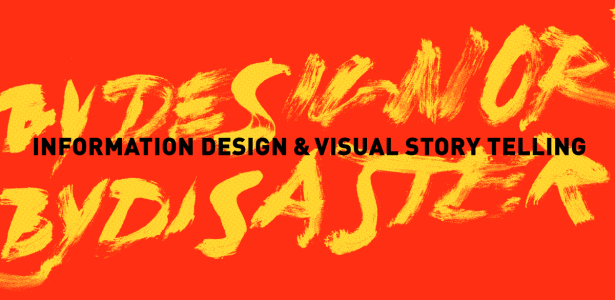
At the Faculty of Design and Art of the Free University of Bolzano we will start a Master in Eco-Social Design (Glocal Design)* in the Winter Semester 2015/16. We are also building up a focus in Visual Journalism. For both we are looking for a designer, who likes to engage in both eco-social issues and information design/visualization/visual story telling. We will open a position as a researcher with a 3-years contract (“ricercatore a tempo determinato / RTD”).
You will teach in the above-mentioned master and you will do design and research by design in diverse projects, where design plays an important role to communicate issues of social, political and/or environmental relevance. We see design and visual communication as a interdisciplinary catalyst of change. This involves a multitude of factors and is undoubtedly challenging. Therefore, we collaborate in multidisciplinary teams and we enjoy it.
Interested? Please get in contact with us. A PhD is a plus, but not required. More importance is given to the portfolio. Unconventional styles and autonomous thinking are appreciated. Additional competences in related fields are welcome, too, for example in web design, motion graphics, user experience design, interface design or physical computing.
* after approval of the ministry (MIUR)
It's getting hotter, do more about!
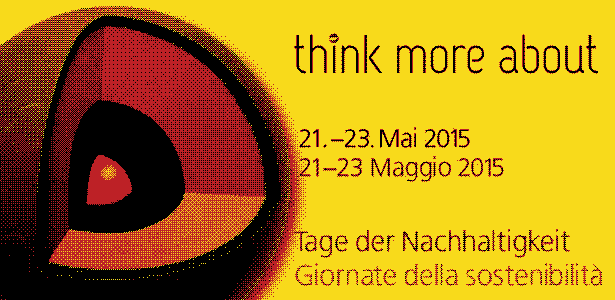 Multiple crisis urge us change.The congress Think More About in Brixen-Bressanone (South Tirol, Italy) presents diverse things that can be done now and brings together diverse actors, who a engaging in Eco-Social Transformations. The program is rich and inspiring. Don’t miss it.
Multiple crisis urge us change.The congress Think More About in Brixen-Bressanone (South Tirol, Italy) presents diverse things that can be done now and brings together diverse actors, who a engaging in Eco-Social Transformations. The program is rich and inspiring. Don’t miss it.
To Do: Die neue Rolle der Gestaltung in einer veränderten Welt
LEZIONE APERTA 18.05. 19:00 unibz F0.03
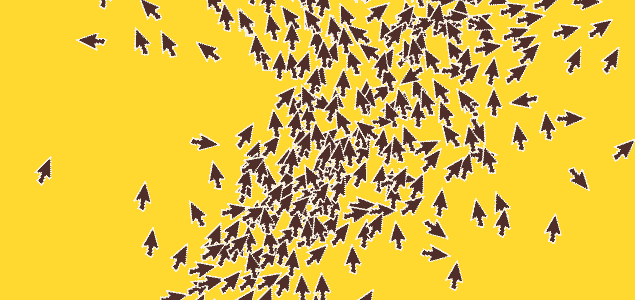
Der Designer Florian Pfeffer hat ein wildes Potpourri aus inspirierenden Projekten, Methoden und Ideen zusammengestellt. Der Hermann Schmid Verlag hat es veröffentlicht. Die Verlegerin Karin Schmidt-Fridrichs sprechen gemeinsam über “Die neue Rolle der Gestaltung in einer veränderten Welt”.
Das Buch kann ich jedem Gestalter ans Herz legen, am besten zusammen mit dem Buch Transformationsdesign von Harald Welzer und Bernd Sommer, in dem beide präzise und eloquent Leitlinien für eine zukunftsfähige Gestaltung skizzieren. Welzer/Sommer liefern den fundierten Diskurs, Pfeffer ein Feuerwerk von Ansätzen und Inspirationen.
Einziger Wermutstropfen für mich als postmateriellen Bücherliebhaber: “To Do: …” gibt’s nicht als eBook, und dass obwohl die vielen Querverweise im Buch geradezu nach einem interaktiven Medium schreien. Transformationsdesign hingegen gibt’s aus als elektrisches Buch, und das sogar ohne Kopierschutz. Gute Ideen müssen weiter gegeben werden!
Danke Hans Höger für’s organisieren dieser Lezione Aperta!
Guest Lecture | 8.5. | unibz: Diverse Economies and Alternative Spaces
8.5. | 10.00 – 12.00 | unibz | Campus Brixen | Aula 1.50
Prof. Giorgos Gritzas & Prof. Karolus Kavoulakis
Diverse Economies and Alternative Spaces. An Overview of Approaches and Practices
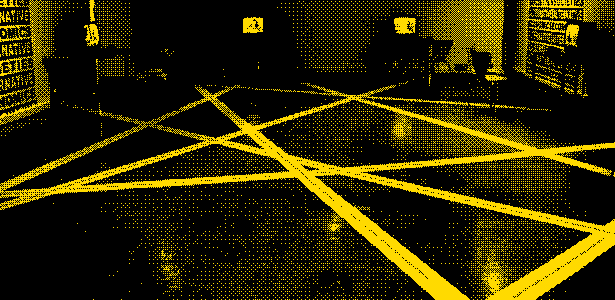
image of an installation of Oliver Ressler
Die beiden griechischen Wissenschaftler befassen sich in Theorie, Forschung und Praxis mit verschiedenen Möglichkeiten und alternativen Formen des Wirtschaftens vor dem Hintergrund der multiplen Krise insbesondere im südeuropäischen Raum sowie mit alternativen Bewegungen.
Ins Zentrum rücken informelle Ökonomien, lokale Subsistenzformen, nicht monetärer Tausch, Genossenschaften, neue Wirtschaftskreisläufe und innovative Wege der Nahrungsbeschaffung, die Lebenszusammenhänge stärken, zur lokalen Entwicklung beitragen und Antworten auf neue Armut in Europa darstellen.
Diskussion und Moderation: Prof. Susanne Elsen
Sustainability Transitions - Putting New Theories to Work on Food and Agriculture Challenges
Vortrag von Prof. Clare Hinrichs, Ph.D. (Pennsylvania State University/US)
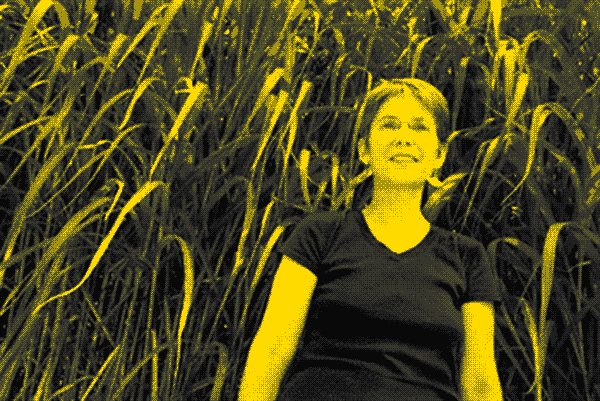
Dienstag, 28. April 2015 │ 19:00 | Universität Innsbruck
SoWi – Universitätsstrasse 15 Fakultätssitzungssaal
Ost │3. Stock │Raum-Nr. 36
In ihrem Vortrag beschäftigt sie sich mit der Frage welchen Beitrag die sogenannte ‚sustainability transition theory‘ im Zusammenhang mit dem beobachtbaren sozialen Wandel am Landwirtschafts- und Lebensmittelsektors für die Forschung und Praxis leisten kann. Diesbezüglich erläutert der Vortrag, welche neuen Mittel und Werkzeuge die Theorie anbietet, um die gegenwärtig so vielfältigen und unterschiedlichen Wege und Formen des Wandels und der Transformation verstehbar zu machen. Dabei werden Stärken und Schwächen der ‚sustainability transition theory‘ anhand von Beispielen nachhaltiger Initiativen in Nordamerika illustriert.
Claire Hinrichs ist Professorin für Agrar- und Regionalsoziologie an der Pennsylvania State University in den USA. In einer Reihe von internationalen Forschungsprojekten befasste sie sich mit Dynamiken nachhaltiger Landwirtschafts- und Lebensmittelsysteme.
Im Rahmen der “International Agri-food Lectures”, organisret von Univ.-Prof. Dr. Markus Schermer & Mag. Christoph Furtschegger | Department of Sociology
Teach "Modeling and Digital Fabrication" (closed)
Job advertisement: At the Faculty of Design and Art of the Free University of Bolzano we will start a Master in Eco-Social Design (Glocal Design)* in the winter semester 2015/16. Therefor, we are looking for a specialist in “Modelling and Digital Fabrication”, who wants to engage in our project-oriented and multidisciplinary teaching model. Teaching languages can be English, German or Italian. The teaching will take place in Bozen-Bolzano during the winter semester 2015/16 (Oct-Jan; 30h lectures/seminar/workshops + 18h “tutoring”).
The official job offering is published here. Deadline: 14.05.2015. If you have any questions or need help to understand the bureaucratic procedure, please don’t hesitate to get in contact with us.
Modelling and digital Fabrication
The course Modeling and digital Fabrication teaches methods and instruments of 3D modelling of Rapid Prototyping and of Digital Fabrication. The experimental and kreative application of these technologies and methods in design project is important.
Transdisciplinary design projects play the central role the study model of the MA. Students are developing them with great autonomy related to the yearly theme (which could be “Food”, “Demographic Change”, “Tourism” or other broad topics). A part of the teaching in Modeling and digital Fabrication consists in the discussion of the ongoing projects from the perspective of the field. Another part are seminars and lectures.
Modelling und Digitale Fabrikation
Im Fach „Modelling und Digitale Fabrikation“ werden Methoden und Techniken des 3D-Modelling, des Rapid Prototyping und der Digitalen Fabrikation vermittelt. Zentral dabei ist die experimentelle und kreative Anwendung dieser Techniken und Methoden in Designprojekten.
Im Mittelpunkt der Lehre im Master steht die Entwicklung von transdiziplinären Designprojekten, an denen die Studierenden arbeiten und dabei jeweils auf das übergeordnete und offen gehaltene Jahresthema Bezug nehmen (beispielsweise “Essen”, “Tourismus”, “Demografischer Wandel”, etc.). Ein Teil der Lehre im Fach “Modelling und Digitale Fabrikation” besteht aus der Diskussion der laufenden Projektarbeiten aus Sicht des Faches, ein anderer Teil aus Seminaren und Vorlesungen.
Design e fabbricazione digitale
l’insegnamento “Design e fabbricazione digitale” trasmette metodi e tecniche della modellazione 3D, del rapid-prototyping e della digital fabrication. È di grande importanza l’applicazione sperimentale e creativa di queste tecniche e metodi nei progetti di design.
Fulcro dell’insegnamento nella laurea magistrale è lo sviluppo di progetti di design transdisciplinari, ai quali lavorano gli studenti tenendo in considerazione il tema annuale preposto e di ampio respiro (ad esempio “mangiare”, “turismo”, “cambiamento demografico”). Una parte dell’insegnamento della materia “Moderazione e partecipazione” è formata dalla discussione dei lavori di progetto correnti dal punto di vista della materia, un’altra parte da seminari e lezioni.
Teach "Moderation and Participation" (closed)
Job advertisement: At the Faculty of Design and Art of the Free University of Bolzano we will start a Master in Eco-Social Design (Glocal Design)* in the winter semester 2015/16. Therefor, we are looking for a specialist in “Moderation and Participation”, who wants to engage in our project-oriented and multidisciplinary teaching model. Teaching languages can be English, German or Italian. The teaching will take place in Bozen-Bolzano during the winter semester 2015/16 (Oct-Jan; 30h lectures/seminar/workshops + 18h “tutoring”).
The official job offering is published here. Deadline: 14.05.2015. If you have any questions or need help to understand the bureaucratic procedure, please don’t hesitate to get in contact with us.
Moderation and Participation
The course Moderation and Participation tackles concepts, methods, instruments, practices and strategies of moderation and of the facilitation of participation.
Transdisciplinary design projects play the central role the study model of the MA. Students are developing them with great autonomy related to the yearly theme (which could be “Food”, “Demographic Change”, “Tourism” or other broad topics). A part of the teaching in Moderation and Participation consists in the discussion of the ongoing projects from the perspective of the field. Another part are seminars and lectures.
Moderation und Partizipation
Im Fach „Moderation und Partizipation“ werden Konzepte, Methoden, Instrumente, Praktiken und Strategien der Moderation und der Förderung von Partizipation vermittelt.
Im Mittelpunkt der Lehre im Master steht die Entwicklung von transdiziplinären Designprojekten, an denen die Studierenden arbeiten und dabei jeweils auf das übergeordnete und offen gehaltene Jahresthema Bezug nehmen (beispielsweise “Essen”, “Tourismus”, “Demografischer Wandel”, etc.). Ein Teil der Lehre im Fach “Moderation und Partizipation” besteht aus der Diskussion der laufenden Projektarbeiten aus Sicht des Faches, ein anderer Teil aus Seminaren und Vorlesungen.
Moderazione e partecipazione
L’insegnamento “Moderazione e partecipazione” trasmette concetti, metodi, strumenti, pratiche e strategie della moderazione e della promozione della partecipazione diretta.
Fulcro dell’insegnamento nella laurea magistrale è lo sviluppo di progetti di design transdisciplinari, ai quali lavorano gli studenti tenendo in considerazione il tema annuale preposto e di ampio respiro (ad esempio “mangiare”, “turismo”, “cambiamento demografico”). Una parte dell’insegnamento della materia “Moderazione e partecipazione” è formata dalla discussione dei lavori di progetto correnti dal punto di vista della materia, un’altra parte da seminari e lezioni.
* after approval of the ministry (MIUR)
Teach "Eco-Social Economics" (closed)
Job advertisement: At the Faculty of Design and Art of the Free University of Bolzano we will start a Master in Eco-Social Design (Glocal Design)* in the winter semester 2015/16. Therefor, we are looking for a specialist in Eco-Social Economics, who wants to engage in our project-oriented and multidisciplinary teaching model. Teaching languages can be English, German or Italian. The teaching will take place in Bozen-Bolzano during the winter semester 2015/16 (Oct-Jan; 30h lectures/seminar/workshops + 18h “tutoring”).
The official job offering is published here. Deadline: 14.05.2015. If you have any questions or need help to understand the bureaucratic procedure, please don’t hesitate to get in contact with us.
Eco-Social Economics
The course Eco-Social Economics tackles concepts, methods, instruments, practices and strategies of eco-social economies, in particular related to future viable developments, common good, management of commons, cooperative economic cultures, management for sustainable business practices, and sustainable regional and local economic cycles.
Transdisciplinary design projects play the central role the study model of the MA. Students are developing them with great autonomy related to the yearly theme (which could be “Food”, “Demographic Change”, “Tourism” or other broad topics). A part of the teaching in Eco-Social Economics consists in the discussion of the ongoing projects from the perspective of the field. Another part are seminars and lectures.
Ökosoziale Wirtschaft
Im Fach “Ökosoziale Wirtschaft” geht es um Konzepte, Methoden, Instrumente, Praktiken und Strategien des Öko-Sozialen Wirtschaftens, vor allem Hinblick auf zukunftsfähige Entwicklungen, auf Gemeinwohl, auf die Bewirtschaftung von Gemeingütern, auf kooperative Wirtschaftsformen, nachhaltiges Management von Unternehmen sowie auf nachhaltige lokale und regionale Wirtschaftskreisläufe.
Im Mittelpunkt der Lehre im Master steht die Entwicklung von transdiziplinären Designprojekten, an denen die Studierenden arbeiten und dabei jeweils auf das übergeordnete und offen gehaltene Jahresthema Bezug nehmen (beispielsweise “Essen”, “Tourismus”, “Demografischer Wandel”, etc.). Ein Teil der Lehre im Fach “Ökosoziale Wirtschaft” besteht aus der Diskussion der laufenden Projektarbeiten aus Sicht des Faches, ein anderer Teil aus Seminaren und Vorlesungen.
Economia eco-sociale
l’insegnamento “Economia eco-sociale” introduce concetti, metodi, strumenti, pratiche e strategie dell’economia eco-sociale con particolare attenzione agli sviluppi sostenibili, al bene comune, alla gestione dei patrimoni comuni, alle forme economiche cooperative, alla gestione d’impresa sostenibile nonché ai cicli economici sostenibili a livello locale e regionale.
Fulcro dell’insegnamento nella laurea magistrale è lo sviluppo di progetti di design transdisciplinari, ai quali lavorano gli studenti tenendo in considerazione il tema annuale preposto e di ampio respiro (ad esempio “mangiare”, “turismo”, “cambiamento demografico”). L’insegnamento della materia “Moderazione e partecipazione” è formata dalla discussione dei lavori di progetto correnti dal punto di vista della materia, nonché da seminari e lezioni.
* after approval of the ministry (MIUR)
intense & inspiring GLOCAL DESIGN SPRING 2015
Here are some impression from the Glocal Design Spring 2015 the charming video&interview team edited. More structured videos will follow.
. GDS15 was intense, inspiring and a confirmation that with our upcoming Master in Eco-Social Design we are heading in the right direction.
Glocal Design Spring 2015
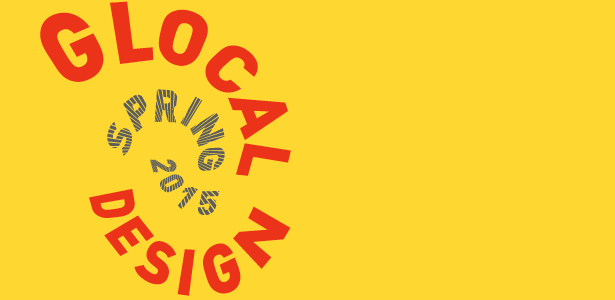
March 27–28, Bolzano, Italy / transdisciplinary convention on
/ transformative actions, design & research
\ local developments & global contexts
/ design as a catalyst of change
in preparation of the Master in Glocal Design.
with
\ Christa Müller / Aral Balkan \ Lucas Evers / Doina Petrescu \ Brave New Alps /
Armin Bernhard \ Günter Reifer / Kathrin Böhm \ AKRAT / Susanne Elsen \ Sebastian Schütz \ Anna Seravalli
(to be confirmed)
organized by
Kris Krois
at the
\ Faculty of Design and Art / Free University of Bolzano-Bozen
more
/ Synopsis (PDF)
\ conference web site and registration coming soon
/ updates via Facebook & Twitter
Neues Design für transformative Ideen & Projekte?
HEUTE, 17.12.2014 19:00 | unibz F0.03 | BY DESIGN OR BY DISASTER TALK #11
Christof Gassner: Lifestyle oder Müsli: Alltag, Ökologie, Design
Generiert eine neue Thematik neue Formen der visuellen Kommunikation?
Kann sich auf dem Markt der Massenmedien ein alternatives Projekt mit einem alternativen Design durchsetzen?
Wie viel (Basis-)demokratie verträgt Gestaltung?
Zoe Romano: IL LAVORO CREATIVO NELL’ECOSISTEMA DEI MAKER
TODAY, 02.12.2014 19:00 | unibz F0.03 | BY DESIGN OR BY DISASTER TALK #10
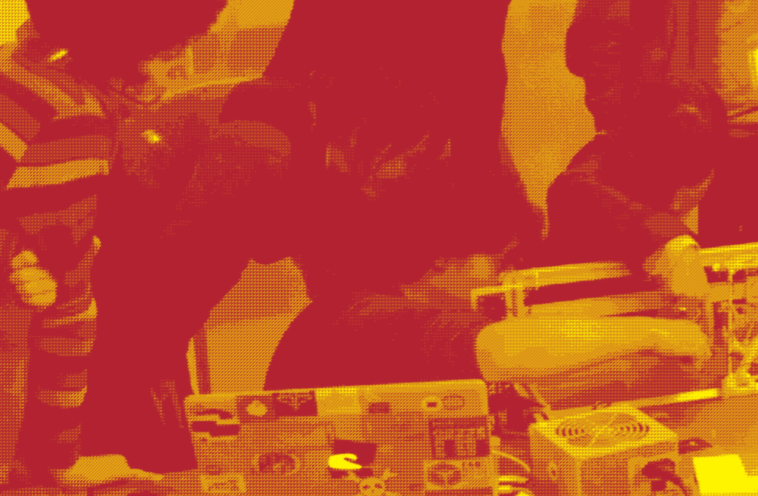 La talk esaminera’ come l’ecosistema dei maker stia diventando uno spazio per riflettere sul concetto di lavoro e formazione attraverso l’esperienza sviluppata a partire dalle sperimentazioni avvenute da Serpica Naro nel 2005, passando per il progetto europeo Openwear sino ad arrivare alle costruzione del makerspace WeMake a Milano.
La talk esaminera’ come l’ecosistema dei maker stia diventando uno spazio per riflettere sul concetto di lavoro e formazione attraverso l’esperienza sviluppata a partire dalle sperimentazioni avvenute da Serpica Naro nel 2005, passando per il progetto europeo Openwear sino ad arrivare alle costruzione del makerspace WeMake a Milano.
more
The slides (thanks Zoe for sharing):
Today, 19:00 @ unibz: Happycentro!
25.11. | 19:00 | unibz F 0.03 | Happycentro!
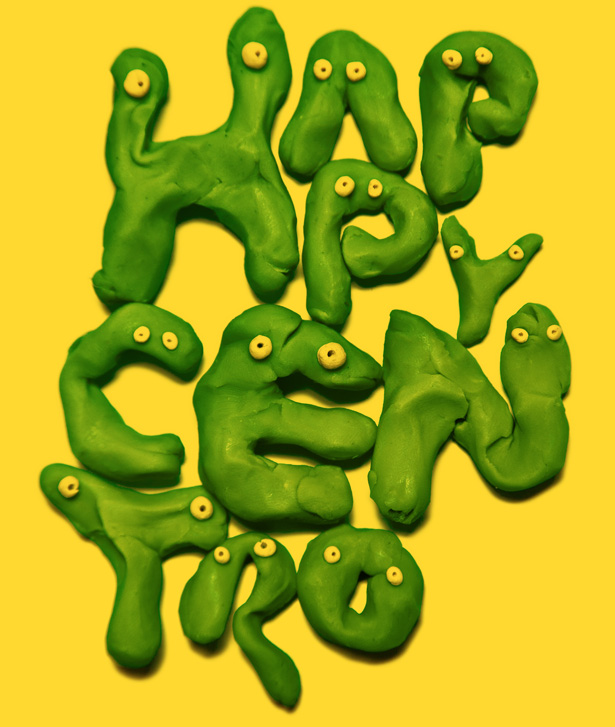
Federico Galvani: Design First Aid Kit – KIT DI SOPRAVVIVENZA PER LA PROGETTAZIONE COMPLESSA
Nel tentativo di definire un approccio
progettuale alla risoluzione di problemi
complessi, proponiamo una sorta di mansionario…
11.11. | 19:00 Richtungscheck mit Andreas Pichler
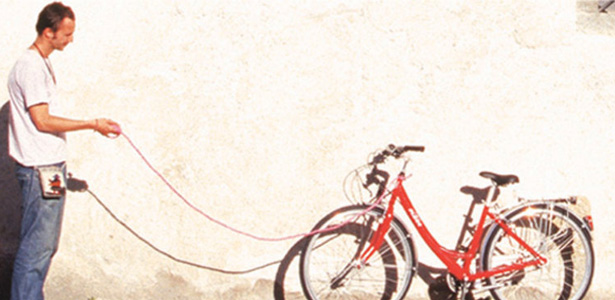 11.11. | 19:00 | unibz F 0.03 | Andreas Pichler
11.11. | 19:00 | unibz F 0.03 | Andreas Pichler
Richtungscheck!
Die Optimierung der falschen Wege
Wir sind inzwischen so sehr gewohnt, dass es von allen Produkten und Dienstleistungen die Variante „grün“, „öko“, „fair“, „klimaneutral“ usw. gibt, dass wir oft vergessen uns zu fragen – Wozu? Wieviel? Was brauche ich wirklich? Und macht es mich glücklich, wenn ich es habe?
Andreas Pichler ist er Geschäftsführer des Ökoinstituts Südtirol / Alto Adige
Er hat Betriebs- und Volkswirtschaft studiert (Schwerpunkt: Soziale Betriebsverantwortung). Er leitete das Landesbüro der Grünen Südtirols und ist Mitglied im Brixner Gemeinderat.
2 Filme zu bewegenden Theme in Brixen
13.11. | 16.00 – 18.00 | unibz Campus Brixen | Raum 2.24
Vortrag, Film und Diskussion mit Prof. Dr. Gilles Reckinger und Dr. Diana Reiners:
Die Menschen von Lampedusa und die Bootsflüchtlinge: Begegnungen am Rande Europas
Lampedusa, eine kleine italienische Insel im Mittelmeer. Klein genug, dass man sie getrost immer wieder vergessen konnte in Rom und in Brüssel – wären da nicht Zehntausende von Bootsflüchtlingen aus Afrika, die in den letzten Jahren dort angekommen sind. Wann immer eine besondere Tragödie zu vermelden ist, richten die Medien reflexartig ihre Spots auf die Insel, tragen diese Bilder von der Peripherie in die Mitte Europas – und wenden sich genauso schnell wieder ab. Von Lampedusa und den Lampedusani erfahren wir nichts.
Der Ethnologe Gilles Reckinger hat sich mehr Zeit genommen und fragt nach dem Umgang der Menschen mit diesen Widersprüchen, und was das mit uns in der Mitte Europas zu tun hat.
11.11. | 19.30 | unibz Campus Brixen | Aula Magna
Schatten der Scham
von Sabina Zwitter-Grilc
Sabina Zwitter Grilc wurde für diesen Film über das Leiden der nachfolgenden Generationen von Opfern des Naziregimes mit dem Gatterer-Preis 2014 ausgezeichnet.
Die Regisseurin steht dem Publikum nach der Filmvorführung für Fragen und Diskussionen zur Verfügung.
Dialogabend zur Direkten Demokratie

… der Dialogzyklus zur Direkten Demokratie, zu dem der I. Gesetzgebungsausschuss des Landtags die Bürgerinnen und Bürger einlädt. Ziel ist ein Gesetz zur Volksabstimmung, das von der Bevölkerung mitgeschrieben wird.
Der zweite Dialogabend findet heute, Mittwoch, 22. Oktober, statt.
19.30 Uhr, Kulturhaus „Karl Schönherr”, Göflanerstraße 27/b – Schlanders
Weitere Dialogabende sind in Sterzing, Neumarkt, Bruneck, Meran und Bozen geplant. Blufink berät und begleitet den Prozess.
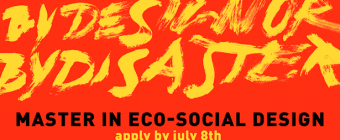
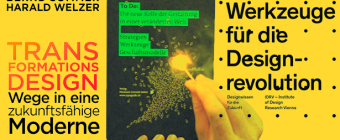
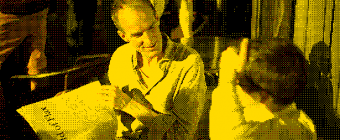
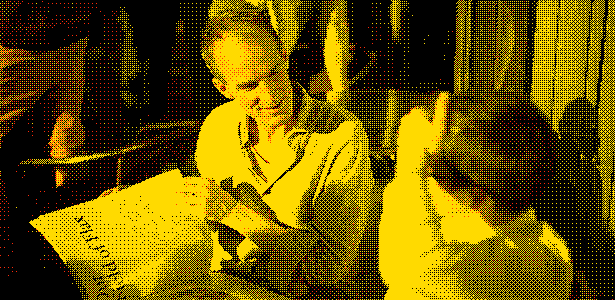
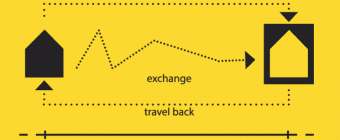
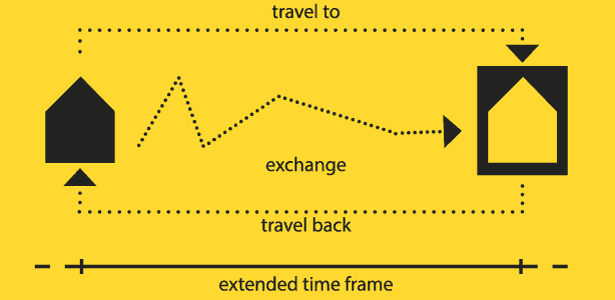 more
more